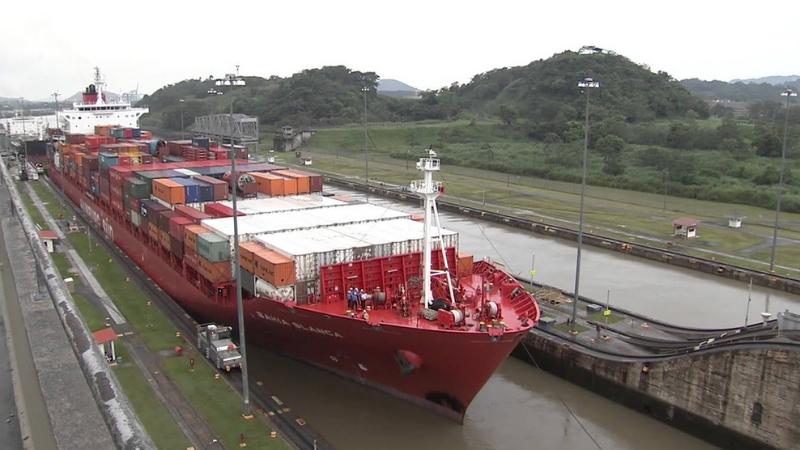
- greensea
- 30 Dec 2024 11:19 PM
- Global News
President-elect Donald J. Trump intensified his rhetoric this week, threatening to reclaim control of the Panama Canal. Trump accused Panama of permitting Chinese military presence at the canal and overcharging U.S. ships, though these claims lack evidence. He has demanded lower fees for U.S. vessels and insisted that the canal be returned to American control "quickly and without question" once he takes office next month.
In a fiery statement on Wednesday, Trump announced Kevin Marino Cabrera as his pick for U.S. ambassador to Panama and accused the Panamanian government of "ripping us off" on canal fees. On his social media platform, Truth Social, Trump claimed—without basis—that Chinese soldiers are operating the canal and criticized the U.S. for spending "billions of dollars" on canal maintenance while having no say in its operations.
Historical Context and Ownership of the Panama Canal
The Panama Canal was built by the United States between 1904 and 1914, providing a vital shipping route that connects the Atlantic and Pacific Oceans. The U.S. managed the canal for several decades, a situation that often caused tensions with Panama. In 1964, anti-American riots erupted in the canal zone, prompting renegotiation of canal treaties.
In 1977, President Jimmy Carter and Panamanian leader Omar Torrijos signed the Torrijos-Carter Treaties. These agreements ensured the canal’s permanent neutrality and outlined the gradual transfer of control to Panama, which was finalized on December 31, 1999. Since then, the canal has been operated by the Panama Canal Authority (ACP).
Responding to Trump’s accusations, Panamanian President José Raúl Mulino firmly stated, “Every square meter of the Panama Canal and its adjacent areas belong to Panama.” He also refuted claims of overcharging U.S. ships, noting that all countries pay the same fees, adjusted for ship size and market conditions.
Rising Costs and Drought Challenges
Shipping rates have increased recently due to a historic drought in Panama, caused by El Niño and climate change, which reduced water levels in Gatun Lake—a key hydrological reserve for the canal. As a result, authorities restricted canal traffic to conserve water. While Trump dismisses climate change as a "hoax," Panamanian officials argue that the higher fees are necessary for maintenance and operations under current environmental conditions.
China’s Role in the Panama Canal
Contrary to Trump’s claims, there is no evidence of Chinese soldiers operating the Panama Canal. Panamanian President Mulino clarified, “There are no Chinese soldiers in the canal.”
However, a Hong Kong-based firm, CK Hutchison Holdings, manages two ports at the canal’s entrances. This has raised some concerns about China’s influence, as Hong Kong is under Beijing’s control. Experts suggest that the company could have access to data on ships transiting the canal, giving China potential intelligence and competitive advantages.
China is the second-largest user of the canal after the United States. In 2017, Panama cut diplomatic ties with Taiwan and recognized Beijing, further strengthening China’s influence in the region. Despite this, Chinese officials have reiterated their respect for Panama’s sovereignty over the canal.
Could the U.S. Reclaim Control of the Panama Canal?
Reasserting U.S. control over the Panama Canal would be extremely difficult. The Torrijos-Carter Treaties established the canal’s permanent neutrality, guaranteeing its open and secure operation for all nations. The U.S. Senate ratified these treaties in 1978, solidifying the legal framework.
President Mulino has dismissed the idea of selling the canal, emphasizing that rates are set transparently through public meetings by the Panama Canal Authority. Mick Mulvaney, Trump’s former chief of staff, suggested Trump’s statements might be a negotiating tactic to lower fees rather than a genuine plan to reclaim control.
Still, some experts warn that Trump's aggressive rhetoric could strain U.S.-Panama relations. Ryan C. Berg, director of the Americas Program at the Center for Strategic and International Studies, noted, “We should not want this to devolve into some kind of political fight because we’re going to need President Mulino on a number of other issues, including illegal immigration.”
Mulino, known for his pro-American stance, is seen as an ally to the U.S. and is likely open to working with the incoming administration on shared challenges.
Broader Implications
Trump’s remarks reflect a broader Republican skepticism toward the handover of the Panama Canal, an issue that dates back decades. During his presidential campaign, Ronald Reagan criticized the transfer, arguing that Americans were the canal’s “rightful owners.” Trump’s focus on China’s growing influence in Panama also aligns with heightened U.S. concerns about Beijing’s strategic expansion in Latin America and the maritime sector.
While the canal remains a symbol of national pride for Panama, its strategic importance for global trade and U.S. national security continues to make it a focal point of geopolitical tensions. Whether Trump’s rhetoric leads to policy changes or simply inflames relations, the Panama Canal’s role in U.S.-Panama ties remains as significant as ever.





































